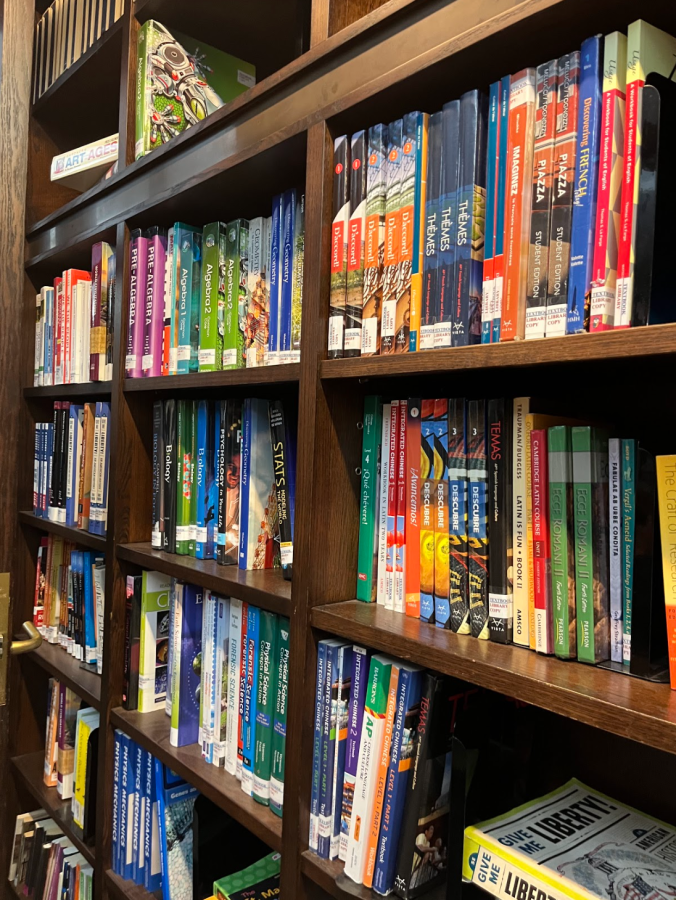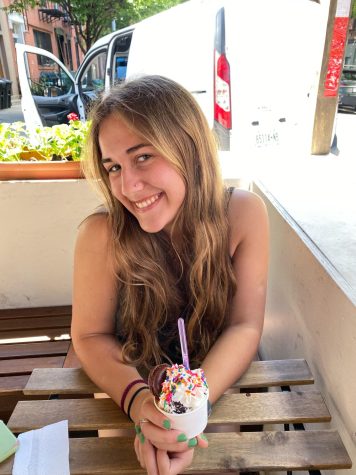Is Poly Becoming a Liberal Arts College?
November 3, 2022
In a press conference with the Polygon, Head of Upper School Sarah Bates made a comment that in a few years, our curriculum will look more like a small liberal arts college’s and not a high school’s.
At first I was annoyed. When choosing courses, we had to pick specialized electives from a big list and we didn’t even know what teacher taught what class. I had no idea if I wanted to study Linguistics or Astrophysics. As a senior, this felt like too much unnecessary change that seemed to just be instated to make Poly look fancy and perhaps attract new students. I do not want to go to college while I’m still in high school. My other issue was that Poly was beginning to feel like a different school, and I just wanted everything to be the same for my final year as a student.
Though I viewed this year’s switch away from APs in a positive light, I despised the complete change in curriculum. I wanted to have all the same kinds of classes, without the added pressure of the AP test. Having to teach to the test, in my experience, was deeply harmful to the academic experience. We had to push through material at lightning speed, therefore sacrificing deep understanding. My APUSH class last year studied the whole of the Revolutionary War and the Civil War during various school breaks because we did not have time in class. We were assigned to learn this material on our own and barely spoke about them in class. APs were useful to some as they were a standardized advanced curriculum but Poly has the resources to be able to create meaningful advanced classes without the help of the College Board. My biggest qualm was that as we shifted from APs to advanced classes, every survey class was taken away. Survey classes are introductory classes that give general information on a certain subject, like APUSH, but now classes are only specialized, such as the History of International Aid.
I saw high school as a time to be able to take broad classes that would introduce me to many fields of study. I wanted to use those as jumping off points for a more specialized curriculum in college. I felt like we were being forced to specialize too soon when I didn’t have enough background knowledge to come into the classes. I felt lost in a sea of choices with little to no guidance.
While deans were a resource, they seemed to care mostly about what level class you were taking. I knew I wanted to be in an advanced English class, but it was up to me to rank which ones I was most interested in, but I had no idea. I’m the kind of person that likes to have a plan and honestly I’ve been planning what classes I would take as a senior for years. I really wanted to take a year-long biology class because the last time I took biology was sophomore year and most of the teaching was lost due to COVID-19 challenges. Due to the whole curriculum changing, I did not have that opportunity anymore. I wanted to follow the path I had envisioned. Junior year, I took APUSH, so I planned on either taking AP Government or AP European History senior year. Because of the sudden change, I felt completely thrown.
However, what I didn’t account for was the renewed passion each teacher would have for their class. Rather than teaching the broad subject they specialized in, they now get to teach exactly what they love the most. I’ve found that the more specified the class is, the more invested the teacher is. This kind of energy is infectious. Students are more passionate about the subject when their teachers are. The classroom feel has completely changed for the better.
This year, many teachers at Poly have chosen to teach classes about a smaller field they are even more passionate about. Rather than teaching a standard, grade-wide list of books, for example, each English class is centered around a more specific theme. The specificity allows teachers to dive into material deeply and give students a more well-rounded understanding of a more specific field. I have also noticed that students are often more engaged because the curriculum feels much more connected within the class than in past years. Poly already feels more academic and curious than ever before, so in that way my opinion has shifted. These kinds of classes enrich the community and the learning of Poly.
Rather than teaching the broad subject they specialized in, they now get to teach exactly what they love the most.
The roll out of these classes, though, could have been much better. Deans should have done a better job helping students to understand what each class is really going to be about. Students received blurbs about each class, but the 75-page document was overwhelming. Also it is important to note that we were not choosing one class to take, rather ranking what felt like millions of classes. It felt like a toss up of which one you would end up taking. I think knowing what teacher is behind each class would also help with making decisions. I would be much more inclined to take a specialized class I knew nothing about because my favorite teacher was teaching it. I turned out to be happy in the majority of my classes, though I was completely surprised by pretty much all of the content in every class. That should not happen and I’m sure it will not happen in the future as everyone gets used to this new system and deans can offer more specific guidance. To be fair, this may have just been a byproduct of Poly trying out so many new things at once. Being the first group of students to experience any kind of change this major does have its downsides. Hopefully in the future, the administration will figure out how to better help the curricular transition from year to year.
While I wanted to take survey classes to be introduced to many fields of study to figure out what I want to study in college, specialized classes serve the same function just in a different way. Each class is getting me deeply involved in subtopics of each major subject. These kinds of classes produce directly opposing reactions: Love and hate. If it turns out that I love Linguistics for example, maybe I could have a jumpstart in college with figuring out what I want to major in. If I hate Linguistics then I know to cross that off my list of majors. I won’t get briefly introduced to as many possible majors, given that survey classes seem to offer more breadth, but for the few I get introduced to, I will know the content much better and be able to start making an actual decision about how to further my academic career.
Poly’s curriculum becoming more akin to a small liberal arts college benefits the students now, but once fully tested and with most kinks removed will truly make Poly a more academically rigorous community. I’m trying to let go of my resistance to change and understand that this shift will actually do more good than harm to the school — and the students— in the long run.














































